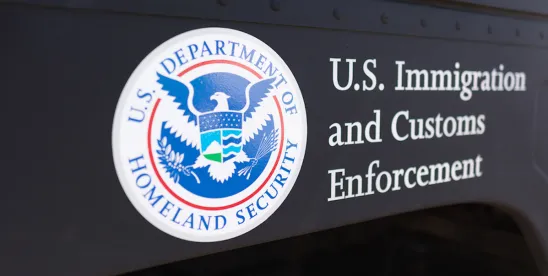Effective April 11, 2025, certain foreign nationals in the US must register online with the Department of Homeland Security (DHS), while others are already registered based on their status. This requirement is based on a 1940 law that mandates every foreign national who is in the US for 30 days must be registered and fingerprinted and DHS issued an Interim Final Rule (IFR) to update the registration regulations, introducing a new online process for unregistered foreign nationals.
Who Needs to Register:
Registration is required for all foreign nationals staying in the United States for more than 30 days who are not already registered, or do not already hold a document that qualifies as registration. This includes:
- Foreign nationals who entered without inspection (EWI): Anyone seeking to stay in the US more than 30 days without having been officially inspected and admitted by US authorities.
- Visa-exempt Canadians: Those entering the US for business or tourism at a land port of entry, but were not issued a Form I-94, and staying for 30 days or more.
- Foreign nationals turning 14 years of age: Those who have been in the US for 30 days or more, regardless of previous registration status, with some exceptions, must register or re-register within 30 days after turning 14 and undergo fingerprinting.
Individuals Already Registered and Those Exempt from the Registration Requirement:
Most foreign nationals already in the US, pursuant to a lawful admission as a visitor or a nonimmigrant worker, do not need to register if they were issued any of the following documents:
- An immigrant or non-immigrant visa, issued by a US Consulate;
- A green card (permanent resident card);
- An I-94 admission record (received by nearly all entrants at airports or land entry points);
- An employment authorization document (EAD);
- Humanitarian parole under INA 212(d)(5), even if the period of parole has expired;
- A Notice to Appear (NTA) issued when a foreign national is placed into deportation proceedings; or
- A border crossing card.
In addition, the following are exempt from the registration requirement:
- Diplomats holding A or G visas;
- Those in the US for less than 30 days; and
- Certain Native Americans born in Canada who entered the United States under INA, Section 289.
Registration Process:
Individuals required to register must create a USCIS account, including separate accounts for children. Detailed registration requirements and steps are available on the USCIS website. The process involves:
- Completing Form G-325R (Biometric Information) online through the USCIS website.
- Submitting biometric data (e.g., fingerprints) and undergoing a background check.
- Upon successful registration, downloading and printing the “Proof of Alien Registration” document from their myUSCIS account.
Legal Obligations of Proof of Registration and Change of Address:
- Those who are obligated to register will receive a “Proof of Alien Registration” document in their myUSCIS account, which they must print and carry at all times.
- Those who don’t need to register must still carry proof of registration at all times (e.g., those with an I-94 must carry a copy of the I-94).
- All foreign nationals, including those exempt from this registration requirement, must notify USCIS, through submission of Form AR-11, of any residential address change within 10 days.
Acceptable Proof of Registration Documents for Those Who Don’t Need to Register:
- A valid, unexpired electronic Form I-94 admission record (available online).
- An I-797 approval notice, which typically includes the I-94 record.
- A US Customs and Border Protection passport admission stamp.
- A Form I-551 Permanent Resident Card (green card).
- A Form I-766 Employment Authorization Document (EAD).
Consequences of Not Registering, Carrying Proof, or Timely Reporting Change of Address:
Foreign nationals who are 18 years or older must carry proof of registration at all times. Failure to comply with registration requirements carries serious penalties:
- Willful failure or refusal to register: A misdemeanor punishable by a fine up to $5,000, imprisonment up to six months, or both.
- Failure to carry proof of registration: A misdemeanor punishable by a fine up to $5,000, imprisonment up to 30 days, or both.
- Failure to report a change of address: A misdemeanor punishable by a fine up to $5,000, imprisonment up to 30 days, or both, and potential detention or removal unless the failure was reasonably excusable or not willful.
Key Takeaways:
The new DHS online registration rule aims to streamline compliance with INA requirements but imposes strict obligations on specific noncitizen groups. Noncompliance can lead to severe legal consequences, including fines, imprisonment, or removal. Affected individuals should promptly register, carry proof of registration, and seek legal counsel if their immigration status is unclear. Squire Patton Boggs will continue to monitor developments regarding the Alien Registration Requirement and post relevant updates.




 />i
/>i
